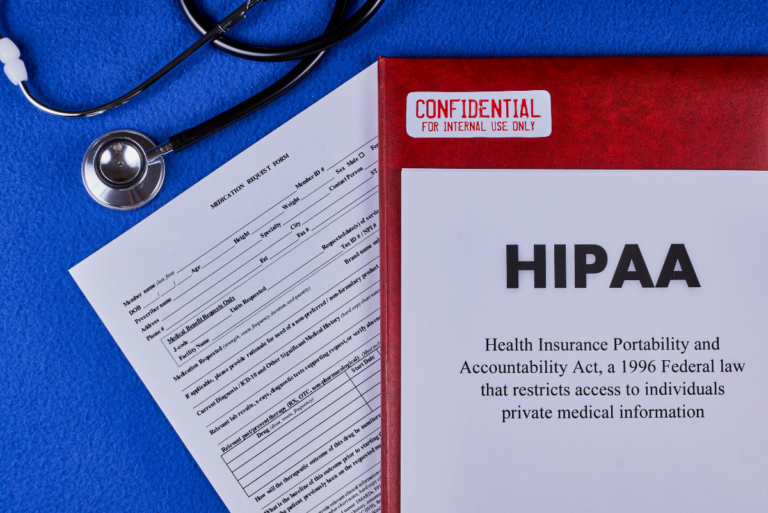Patient confidentiality and privacy are fundamental aspects of medical ethics and legal responsibilities in healthcare. When patients are confident that their sensitive information is safe, they are more likely to be open and honest, leading to better diagnosis and treatment.
However, maintaining confidentiality and privacy in healthcare is not without challenges. The rise of digital health records and the need for information sharing among healthcare providers for improved patient care create potential risks for breaches of confidential information.
This post aims to provide a clear understanding of the basic principles of patient confidentiality and privacy, healthcare providers’ legal and ethical obligations, and the challenges faced in safeguarding patient information.
Defining Patient Confidentiality and Privacy
Patient confidentiality refers to the duty of healthcare professionals to keep personal health information private, disclosing it only with the patient’s consent or under legally mandated circumstances. Privacy, meanwhile, is the patient’s right to have their health and personal information securely stored and not revealed without proper authorization.
Patient information encompasses anything from medical history and treatment plans to personal identifiers like name and contact details. Confidentiality is about the management of this information by healthcare providers, while privacy is about the patient’s control over who accesses their information.
Both concepts are integral to healthcare, ensuring that sensitive information is handled with utmost care and respect for the patient’s autonomy and dignity.
Legal Framework and Ethical Considerations
The legal framework governing patient confidentiality and privacy includes laws and regulations designed to protect patient information. In the United States, the Health Insurance Portability and Accountability Act (HIPAA) is a key legislation that sets national standards for protecting sensitive patient health information.
These laws mandate how healthcare providers handle and share patient information and impose penalties for breaches. Ethically, healthcare providers are bound by principles of beneficence, non-maleficence, and respect for autonomy. Upholding confidentiality and privacy is critical in maintaining trust between patients and providers, a fundamental aspect of medical ethics. This trust is crucial for effective healthcare delivery, as it encourages patients to share information necessary for accurate diagnosis and treatment.
Challenges in the Digital Age
The digital age presents unique challenges in maintaining patient confidentiality and privacy. Electronic Health Records (EHRs) and digital databases have replaced traditional paper records, making storing and sharing patient information more efficient and more susceptible to breaches. Cybersecurity risks, such as hacking and unauthorized access, are significant concerns.
Also, the ease of digital information exchange, while beneficial for coordinated care, raises questions about the extent and control of information sharing. Healthcare providers must navigate these challenges, ensuring robust security measures are in place to protect patient data. They must also balance the benefits of technological advancements in healthcare with the imperative to safeguard patient confidentiality and privacy.
Patient Rights and Responsibilities
Patients have specific rights concerning their personal and medical information. They have the right to consent to how their information is used and shared, emphasizing the importance of informed consent in healthcare. This means patients must be adequately informed about their data use and allowed to agree or object to its use.
Besides, patients have the right to access their medical records, allowing them to review and understand their health information. The right to privacy is paramount, ensuring that personal and sensitive health data are protected from unauthorized access. Alongside these rights, patients also have responsibilities. They are expected to provide accurate and complete information to healthcare providers and understand the implications of their consent, especially when it involves sharing their health data.
Best Practices for Healthcare Providers
For healthcare providers, maintaining patient confidentiality and privacy is a critical responsibility. Best practices in this area include implementing secure communication methods to protect information from being intercepted or disclosed unintentionally. Providers must ensure that patient data are stored securely, employing robust digital security measures for electronic records and physical security for paper records.
Regular training and awareness programs are essential to update healthcare staff on the latest privacy regulations and practices. Additionally, healthcare providers should establish clear protocols for data handling and sharing, ensuring that patient information is only accessed by authorized personnel and for legitimate medical purposes. This includes strategies to prevent and detect unauthorized access or breaches.
The Impact of Breaches and How to Respond
Breaches of patient confidentiality and privacy can have significant consequences. For patients, such breaches can lead to a loss of trust in the healthcare system, potential public embarrassment, and financial or personal harm in some cases. For healthcare providers, breaches can result in legal penalties, financial losses, and damage to reputation. It’s crucial to analyze case studies of past breaches to understand their causes and impacts.
In response to a breach, healthcare providers should act swiftly to contain the breach, notify affected parties, and investigate the cause. Post-breach, there should be a focus on reviewing and improving security measures and protocols to prevent future incidents. Effective communication and transparent actions are key in restoring trust and ensuring accountability after a breach.
Conclusion
Patient confidentiality and privacy, it’s evident that these principles are crucial in healthcare. They form the foundation of the patient-provider relationship, fostering trust and encouraging open communication, which is vital for effective medical care. The healthcare industry faces ongoing challenges in maintaining these standards, especially in an age where digital technology plays a significant role in storing and sharing patient information.
The responsibility of protecting patient confidentiality and privacy lies with individual healthcare providers and the institutions and systems within which they operate. This includes adhering to legal and ethical guidelines, implementing robust security measures for patient data, and ensuring continuous education and awareness among healthcare professionals about the importance of these principles.



